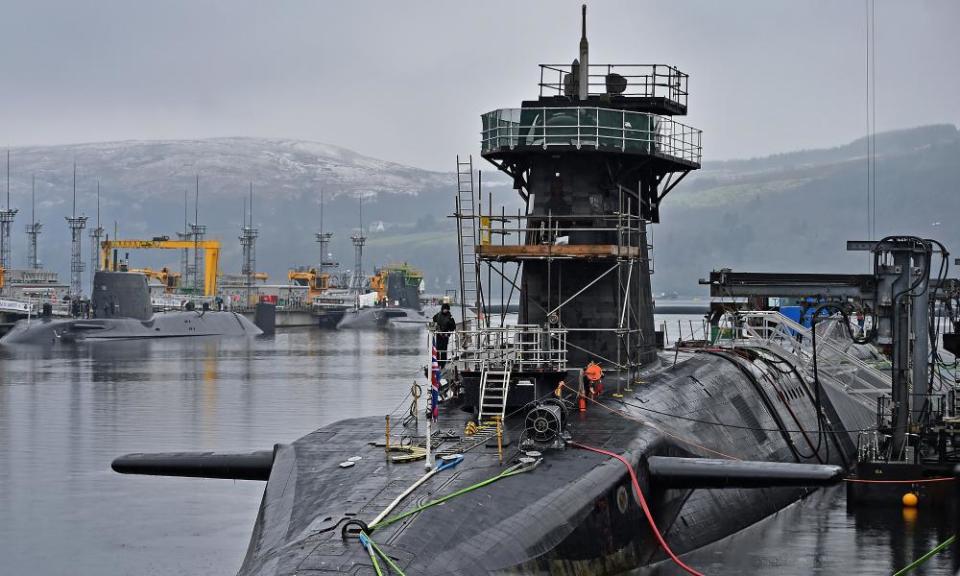Safety fears as UK Trident submarines are put to sea for longest-ever patrols

Britain’s Trident nuclear armed submarines have recently been deployed at sea for record breaking periods of five months each, leading one former navy commander to warn that the longer patrols could affect operational safety.
Investigative journalism site the Ferret reported on Tuesday that two Trident bearing Vanguard class submarines each went out on patrol for 157 days during this year, based on monitoring data from campaign group Nukewatch.
Rob Forsyth, who helped command Polaris nuclear submarines in the 1970s, said that “with patrols now lasting 150 days or more” the most significant challenge was crew discipline, in a blogpost published on Tuesday.
“The great danger is that this unchanging routine, week after week, leads to boredom, complacency and an inevitable drop-off in standards,” Forsyth wrote. “Just as worryingly, personal relationships are tested to the limit.”
Last year a male sailor received a nine-month sentence after he drunkenly tried to force a female colleague to give him oral sex on a nuclear submarine. A military court heard the sailor had been drinking five hours before the harassment started.
This year, Adm Ben Key, the head of the Royal Navy ordered an investigation into “abhorrent” allegations of sexual assault and harassment of women working on submarines, after whistleblowers reported abuse and bullying.
Sailors on a Trident submarine were dismissed in 2017 after they tested positive for using cocaine, and Forsyth wrote that “recent examples of drug use and inappropriate sexual behaviour reported in the media almost certainly are a consequence” of the psychological challenges of long undersea deployments.
“When they take place in a nuclear weapon responsible environment it gives rise to a whole new level of concern, sufficient to question as to whether these very long patrols are … a threat to nuclear weapon safety,” Forsyth added.
The Royal Navy operates the continuous at sea deterrent (CASD) in which one of four nuclear armed submarines is always out on patrol, ready to strike in the unlikely event the UK faces a nuclear attack or other extreme military crisis.
Undersea patrols used to be three months long but have been extended, partly, experts say, because one of the four Trident submarines, HMS Vanguard, was being refitted for seven years after the discovery of a reactor leak.
HMS Vanguard’s absence – it did not return to service until July 2022 – reduced the number of available submarines to a bare minimum of three, one on patrol, one preparing to go out and a third, whose crew were on recovery after coming back.
In November, another Trident submarine, HMS Victorious, was forced back to Faslane base in Scotland after an electrical fire broke out onboard. After repairs the boat is back out at sea, although not currently on nuclear patrol.
The Royal Navy does not comment on the length of Trident submarine patrols but the longest publicly acknowledged patrol was more than 140 days. But while defence sources acknowledge deployments had got longer, the capability of the submarines is said to be greater still.
A spokesperson for the Royal Navy added: “Investigations are ongoing into allegations about sexual misconduct in the submarine service. This has not affected the operation of the deterrent and we strongly refute any suggestion that its operation is anything other than robust.”

 Yahoo News
Yahoo News 